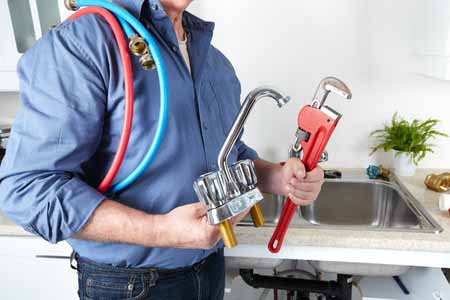When to Call an Emergency Plumber – Signs You Cannot Ignore
Knowing when to call an emergency plumber is crucial for preventing extensive damage and avoiding costly repairs. Plumbing issues can escalate quickly, and recognizing the signs that you need immediate professional help can save you from a major disaster. Here are some key indicators that you cannot ignore. Firstly, if you experience a sudden loss of water pressure, it may signify a serious problem. This issue could be due to a burst pipe or a significant leak somewhere in your system. Low water pressure can disrupt your daily activities and hint at a problem that might worsen over time, making it essential to address it promptly. Another red flag is persistent and severe leaks. If you notice water pooling around your fixtures, under your sink, or on your floor, it is time to call an emergency plumber. Leaks can lead to water damage, mold growth, and structural issues if left unchecked. Even small leaks, if frequent or continuous, can indicate a bigger problem, so it is best to have a professional assess the situation.

Clogged drains are a common issue, but when a clog causes a backup that floods your sink or bathtub, it becomes emergency plumber in Milton Keynes. Such backups can lead to unsanitary conditions and damage to your home. If you have tried conventional methods like plunging or using a drain cleaner without success, a plumber’s intervention is needed to clear the blockage and prevent further issues. Another critical situation is if you hear strange noises from your pipes. Banging, clanking, or gurgling sounds can indicate air trapped in the pipes, a loose pipe, or a more serious issue like water hammer, which can damage your plumbing system. These noises are often signs that something is wrong and should be investigated immediately. Water discoloration is also a serious concern. If your tap water suddenly turns brown, yellow, or cloudy, it might be due to rust or sediment in your pipes.
This could point to an issue with your water supply system or the pipes themselves, potentially affecting your water quality and safety. Contacting an emergency plumber will ensure that any contaminants are removed and that your water system is properly addressed. Lastly, if you are dealing with a frozen pipe, it is crucial to act quickly. Frozen pipes can burst, leading to substantial water damage and flooding. If you suspect a pipe is frozen or if you notice a lack of water flow in certain areas, it is important to have a plumber inspect and thaw the pipes to prevent bursting. In summary, while regular maintenance can prevent many plumbing issues, recognizing these urgent signs loss of water pressure, severe leaks, backup clogs, strange noises, water discoloration, and frozen pipes can help you determine when to call an emergency plumber. Acting quickly can mitigate damage, restore your plumbing system, and safeguard your home from more significant problems.